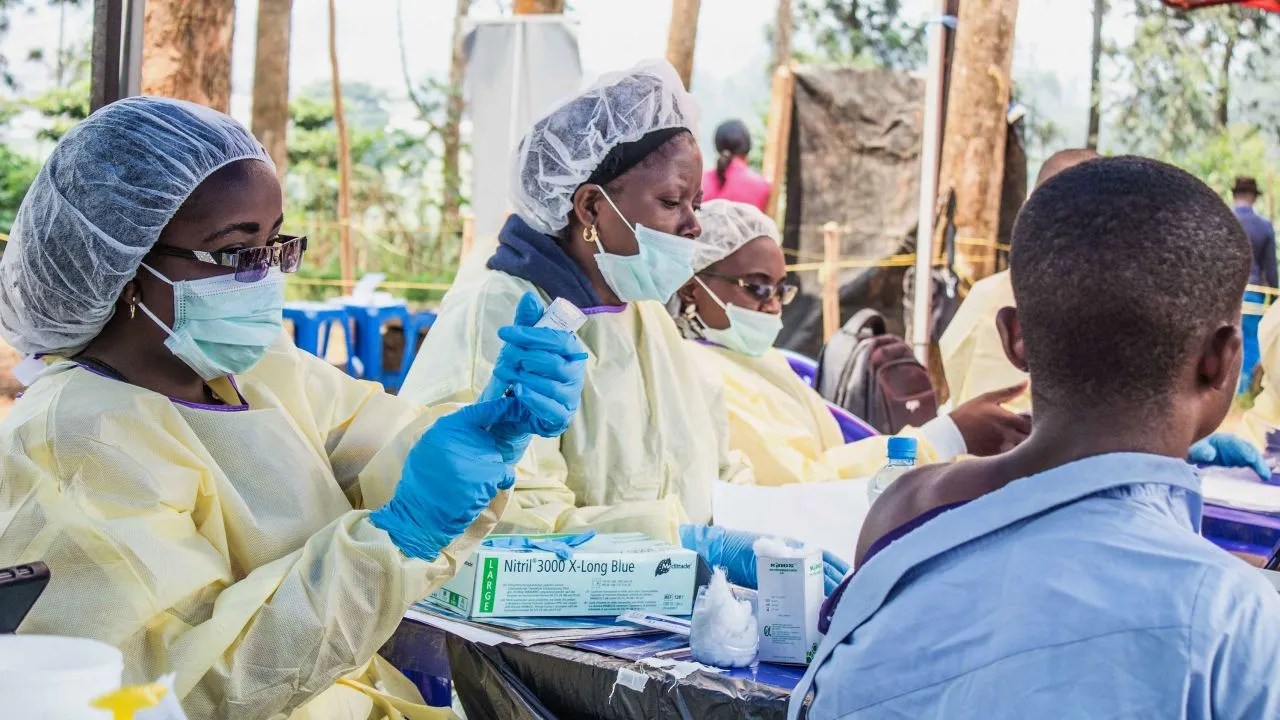The ongoing conflict in the eastern Democratic Republic of the Congo (DRC) has exacerbated the already fragile health situation in the region, leading to a heightened risk of disease outbreaks. According to the World Health Organization (WHO), the fighting between Rwandan-backed M23 rebels and the Congolese armed forces has intensified the spread of diseases such as cholera, malaria, tuberculosis, and the deadly mpox virus. The situation has been described as dire, with millions of people caught in the crossfire, facing both the violence of war and the growing threat of disease outbreaks.
One of the most significant health concerns in the region is the rise of cholera, which has been further exacerbated by the ongoing conflict. The WHO reported over 600 suspected cases of cholera in North Kivu province alone, with at least 14 deaths in the past month. The region’s water supply systems have been severely disrupted due to the violence, making it easier for cholera, a waterborne disease, to spread. Cholera is highly contagious and can be deadly if not treated promptly, especially in areas where sanitation and clean drinking water are scarce.
The fighting has also disrupted efforts to control the spread of other diseases, such as malaria and tuberculosis, which are prevalent in the region. Malaria, in particular, remains one of the leading causes of death in sub-Saharan Africa, and the instability in the DRC has made it more difficult for health organizations to provide the necessary care and prevention measures. The conflict has strained already limited resources, and healthcare facilities have been overwhelmed with casualties from the ongoing fighting, making it even harder to treat common infectious diseases.
Another major health threat in the region is the spread of the mpox virus, a disease that has been making headlines globally. The WHO has reported significant disruptions to vaccination programs aimed at controlling mpox, particularly in the eastern DRC, where the fighting has forced many patients to flee isolation units in Goma, the regional capital. The situation became even more precarious when vaccination programs were temporarily halted for ten days due to the escalating conflict. Although the programs were partially restored on February 5 after a ceasefire was declared by the M23 rebels, the situation remains volatile, and health workers are finding it increasingly difficult to reach affected populations in the midst of the ongoing violence.
The situation in Goma and the surrounding areas is particularly concerning due to the historical context of conflict in the region. The DRC has experienced two devastating wars between 1996 and 2003, which resulted in millions of deaths and widespread displacement. The recent resurgence of violence, particularly the capture of Goma by the M23 rebels, has rekindled fears of a repeat of past tragedies. The fighting has displaced thousands of people and left many without access to basic healthcare, food, or clean water, all of which contribute to the increased vulnerability of the population to disease outbreaks.
The WHO’s reports from health facilities in and around Goma paint a grim picture of the situation. At least 3,082 people have been injured, and 843 have been killed in the recent violence. Hospitals and morgues are said to be overwhelmed, with the medical infrastructure in the region struggling to cope with the influx of casualties. The lack of adequate healthcare facilities and the shortage of medical supplies make it even more difficult for health workers to respond effectively to the disease outbreaks and provide necessary care for those injured in the conflict.
The threat of disease in the eastern DRC is not only a humanitarian crisis but also a public health emergency that requires urgent attention from the international community. The WHO has called for increased support for the region’s healthcare systems, as well as for greater coordination between humanitarian organizations and health authorities to address both the immediate and long-term needs of the population. The organization has emphasized the importance of improving access to vaccines, medicines, and clean water, as well as providing mental health support to those affected by the violence.
In addition to the immediate health threats, the ongoing conflict in the eastern DRC has long-term consequences for the region’s stability and development. The displacement of people, the destruction of infrastructure, and the disruption of essential services make it difficult for the region to recover and rebuild. The prolonged conflict also hampers efforts to address the root causes of instability, such as poverty, weak governance, and the exploitation of natural resources by armed groups. Without a lasting peace agreement and a concerted effort to rebuild the region, the cycle of violence and disease will continue to undermine the well-being of millions of people.
The international community must act quickly to address the crisis in the DRC, both in terms of providing immediate humanitarian assistance and in supporting long-term peacebuilding efforts. While the WHO and other organizations are working tirelessly to provide healthcare and control the spread of disease, the root causes of the conflict must also be addressed. A comprehensive approach that includes diplomatic, political, and economic measures is necessary to bring peace to the region and ensure that the people of the DRC can rebuild their lives without the constant threat of disease and violence.
In conclusion, the ongoing conflict in the eastern DRC has multiplied the risk of disease outbreaks, including cholera, malaria, tuberculosis, and mpox. The violence has disrupted healthcare efforts, leaving millions of people vulnerable to infectious diseases. The WHO has warned that the situation is dire, with hospitals overwhelmed and the healthcare infrastructure stretched to its limits. The international community must provide urgent assistance to address the immediate health needs of the population, while also working towards a lasting peace that will allow the region to recover and rebuild. Only through a concerted and coordinated effort can the threat of disease in the DRC be mitigated and the health and well-being of its people safeguarded.























